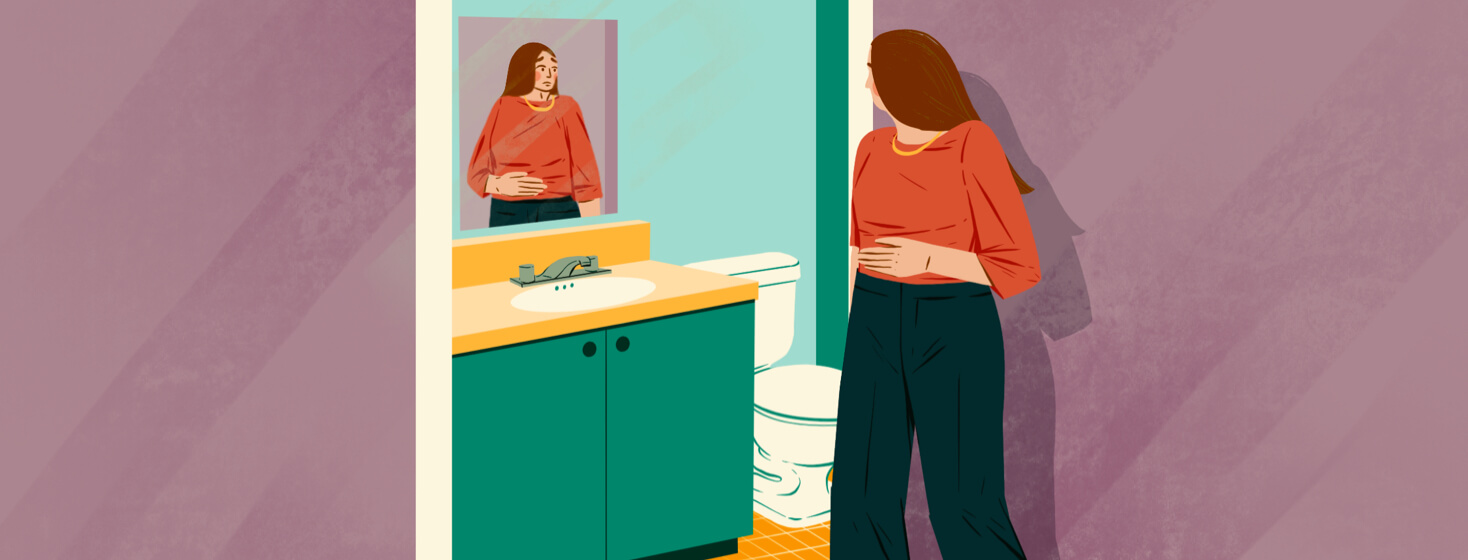Constipation and CF
The majority of people have experienced the discomfort of constipation at one point in life. However, for some people, constipation is a common occurrence. Constipation occurs in up to 50% of people with cystic fibrosis (CF).1 Constipation can be incredibly uncomfortable -- not only is it painful, but it can lead to a condition known as rectal prolapse or intestinal obstruction.1 The good news is constipation can be effectively managed with the right regimen.
What is constipation?
The feeling of constipation is quite subjective in nature; However, there is a medical definition for constipation. Constipation is defined as having 3 or less bowel movements per week.2 However, you may also have constipation if you:3
- Experience hard, small stools that are painful to pass
- Not feeling like the bowel is completely emptied
CF and constipation
Constipation is more likely to occur in people with CF due to a number of factors. These include:4
- Issues with the intestine’s fluid content: Ideally, the colon should retain enough water to keep the stools soft
- Abnormal digestive muscle function: The muscles of the digestive system are either not coordinating, moving at an appropriate speed, or have sufficiently strong contractions
- Pancreas abnormalities: This can result in a dehydrated colon
Treatment for constipation in CF
Most of us have heard of general recommendations to improve bowel health by increasing fiber intake, exercising, and drinking lots of water. While some of these recommendations are good for the general public, they may not always work for people with CF. For example, increasing fiber without increasing water intake can worsen constipation in people with CF.1 For some people, they may wish to get a consult from a dietician to get advice on tailoring their diet.
Because of the underlying cause of constipation in people with CF, the general recommendation is to prevent and treat symptoms with a class of medications known as osmotic laxatives.
Osmotic agents
Osmotic laxatives draw water into the colon, helping to hydrate the bowels and the stool, thereby increasing frequency of bowel movements. They are available over-the-counter without a prescription. There are several types of drugs within this class:4
- Polyethylene Glycol 3350 - This comes formulated in the brands LaxaDay, MiraLAX, GlycoLac, GaviLAX, HealthyLax, among others. All these products are powder formulations, and are usually taken as 1 capful (17 grams) dissolved in 4-8 ounces of a a beverage once daily.
- Lactulose - This is an osmotic laxative that is formulation in a liquid formulation
The advantage of osmotic laxatives is that they are minimally absorbed by the body, therefore having less drug interactions. Overall, they are a very safe class of medications; However, it is recommended to speak to your doctor if you need to be on these drugs long-term.4
Second-line drugs
If osmotic laxatives don’t work, there is another type of drug called lubiprostone that is commonly used to treat CF-related constipation. It works on the chloride channels in the gastrointestinal tract, helping to address the underlying cause of constipation in people with CF. One study showed that this drug improved symptoms of constipation at 2 and 4 weeks.6 It is usually prescribed as one tablet of 25 mcg twice daily.6
Overall, chronic constipation can cause significant disturbance in one’s life. In general, it is thought that people experiencing constipation are not eating enough fruits and vegetables, or are not exercising and drinking enough water. However, for people with CF, that is far from the truth -- You can be following all recommendations and still experience constipation.

Join the conversation